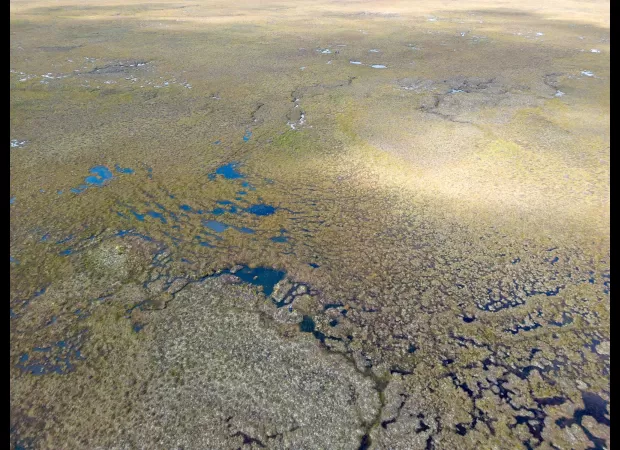The Flow Country in Scotland has been recognized by Unesco as a World Heritage site.
The Flow Country in Scotland has been recognized by Unesco as a world heritage site after a long campaign by environmentalists. This vast and unspoiled blanket bog covers 1,500 sq miles and is the largest of its kind on the planet.

The north of Scotland boasts a vast and untouched landscape of blanket bog, known as The Flow Country. After a dedicated 40-year effort by environmentalists, this unique area has finally been recognized by UNESCO as a world heritage site. Encompassing a whopping 1,500 square miles of Caithness and Sutherland, The Flow Country is home to approximately 400 million tonnes of carbon, surpassing the amount found in all of the UK's forests and woodlands combined.
This type of bog, aptly named for its appearance of a blanket covering the land, is a rare habitat found globally. However, it thrives in Scotland's climate and coastal location. The Flow Country is the first peatland in the world to receive this prestigious designation, joining the ranks of other renowned sites like the Serengeti, Galapagos Islands, and Great Barrier Reef.
Frances Gunn, chair of the Flow Country World Heritage Project, expressed the significance of this achievement, stating, "This is a momentous occasion for the Flow Country, as well as for the north of Scotland and the UK as a whole." She believes that this recognition has the potential to bring about a multitude of opportunities for the local community and encourages them to capitalize on it. Moreover, the Flow Country's environmental and wellbeing value is a top priority moving forward, as this recognition puts the region on the global map.
This vast and delicate ecosystem is home to a diverse array of plants that play a crucial role in combatting climate change. The accumulation of dead vegetation, which has been building up for 9,000 years, acts as a carbon sink, storing and sequestering carbon to prevent it from being released into the atmosphere. The Flow Country is also an important habitat for various wildlife, including upland breeding birds such as the red-throated diver, golden plover, and greenshank.
The Flow Country is also home to the golden plover and other native birds. Credit RSPB
Graham Neville, who spearheaded the campaign for NatureScot, the government conservation agency, describes the decision as "wonderful recognition." He believes that the world heritage status will not only bring a better understanding of the Flow Country but also raise the profile of Scotland's peatlands globally for their biodiversity and role as critical carbon sinks. He also acknowledges the farmers and crofters who have expertly managed this ecosystem, leaving it as a natural legacy for future generations to enjoy.
For more captivating stories on wildlife, be sure to check out Scottish Field. And don't forget to subscribe to read the latest issue!






